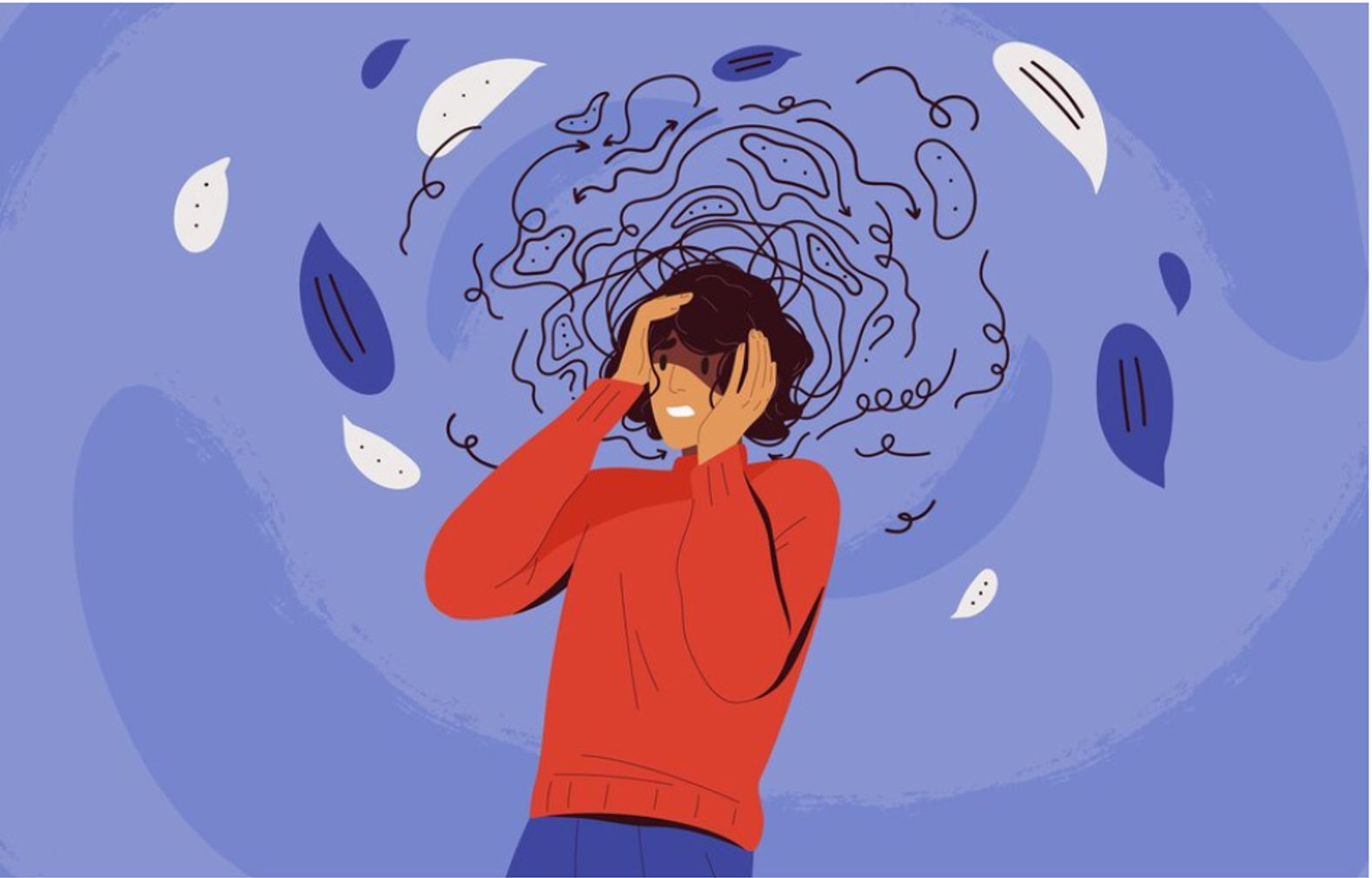How to use anxiety to your advantage

Anxiety is a natural response to stress, characterised by feelings of worry, nervousness, or fear about future events. While some anxiety can be motivating, excessive anxiety can interfere with daily life.
As with any emotion, anxiety is neither “good” nor “bad” – all emotions serve a purpose. We can think of anxiety like fire: fire has all kinds of helpful uses. It helps us cook food, heat our homes, give us a nice tan on holiday, and assists in sterilisation, building materials, and facilitating tech developments. But if fire gets out of control, it can cause a lot of problems.
In a similar way, anxiety has several benefits. In helpful doses, it increases our focus and state of alertness; it pumps us up and gets us motivated; and it increases our capacity for effective problem-solving. It also alerts us to things that are important and in need of our attention.
But…if anxiety becomes excessive, it can affect our sense of mental and physical well-being, and so it’s helpful to know how to recognise the signs of excessive anxiety and how to manage it.
Common symptoms include:
- Excessive worry about everyday situations
- Restlessness or feeling on edge
- Fatigue
- Difficulty concentrating
- Irritability
- Muscle tension
- Sleep disturbances
In more severe cases, anxiety can lead to panic attacks, characterised by sudden, intense fear, heart palpitations, sweating, trembling, and a feeling of impending doom.
Managing anxiety involves a combination of self-care practices, therapeutic techniques, and, when necessary, professional help. Two effective therapeutic approaches for managing anxiety are Acceptance and Commitment Therapy (ACT) and Dialectical Behaviour Therapy (DBT). Let’s take a look at some of the ways these two approaches deal with anxiety…
Acceptance and Commitment Therapy (ACT)
Mindfulness: This practice involves staying present and fully engaging with the current moment without judgement. For instance, a student might focus on their breathing during a lecture, noticing the sensation of air entering and leaving their lungs. This can help reduce racing thoughts and promote a sense of calm.
Cognitive Defusion: This technique helps us detach from anxious thoughts. Instead of saying "I am anxious," we might reframe it to "I’m having the feeling of anxiety." This subtle shift can reduce the power of anxiety if practiced consistently. (How does it work? It shifts our perspective from identifying with the emotion “I am anxious” to one that recognises we’re not the emotion and that it will pass, “I’m having the feeling of anxiety.”
Check out this short animation to find out more.
Values Clarification: Understanding what is truly important can help us prioritise our actions. For example, if academic success is a core value, we can practise some techniques to manage our anxiety around the thought of failing exams (which is understandable – exams are important…) and develop useful schedules or methods to help us study more effectively.
(By the way… ‘Success’ is just one example of a value. Personal values are unique to each person and can change over time. Values (from an ACT perspective) are never something that comes from “I should…” or “I must…”)
Dialectical Behaviour Therapy (DBT)
Emotion Regulation: This involves identifying and labelling emotions to manage them better. We might keep an emotion diary, noting what triggers their anxiety and how they respond. This awareness can lead to healthier coping strategies.
Distress Tolerance: Techniques such as the TIP skills (Temperature, Intense exercise, Paced breathing, and Progressive muscle relaxation) can help students manage acute anxiety. For instance, taking a cold shower or engaging in vigorous exercise can quickly reduce anxiety levels. If you’re interested in learning more distress tolerance exercises, check this out.
Interpersonal Effectiveness: This skill focuses on improving communication and assertiveness. Learning to say no, set boundaries, and ask for help can alleviate the anxiety that stems from social interactions and academic pressures. Here’s a helpful resource if you’d like to find out more.
Managing emotions such as anxiety begins with understanding, spotting the signs of excessive anxiety, and developing a toolkit of techniques that works for you. And remember – everybody feels anxious at times. Far from being “abnormal” or “weak”, it’s a natural part of being human.
Speak of Being Human, check out this podcast episode from our friends at Relate Malaysia, featuring Dr. Jon Abramowitz – a leading expert on anxiety – who shares his thoughts on why anxiety isn’t as bad as we think.




